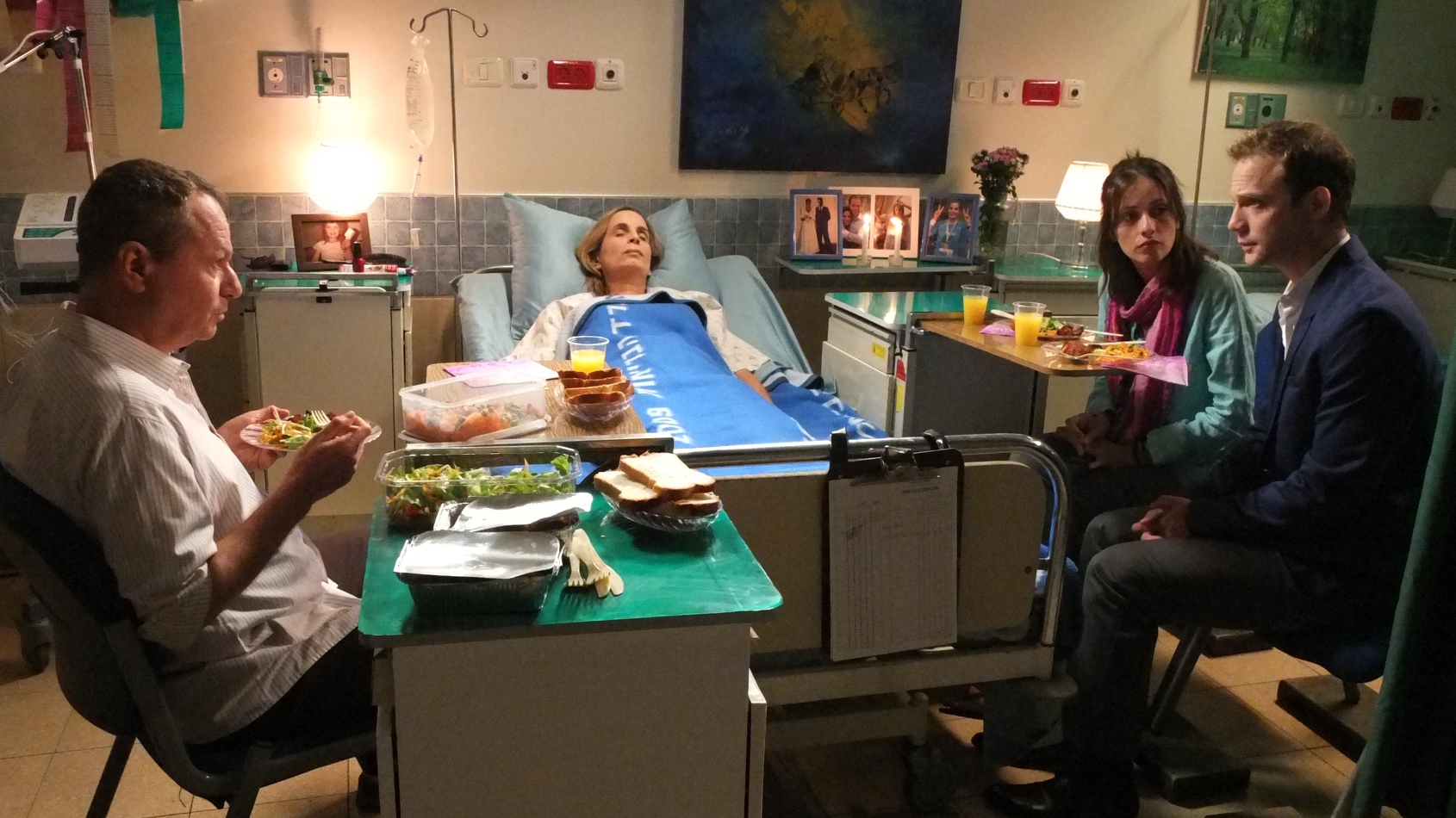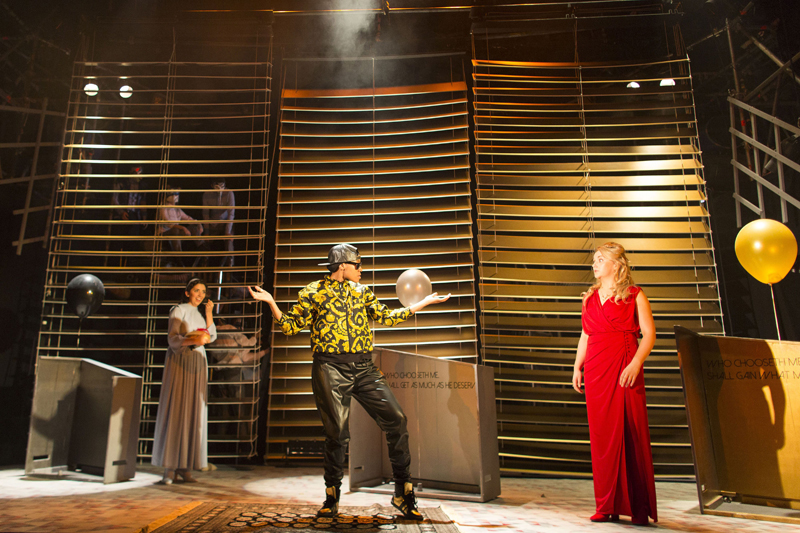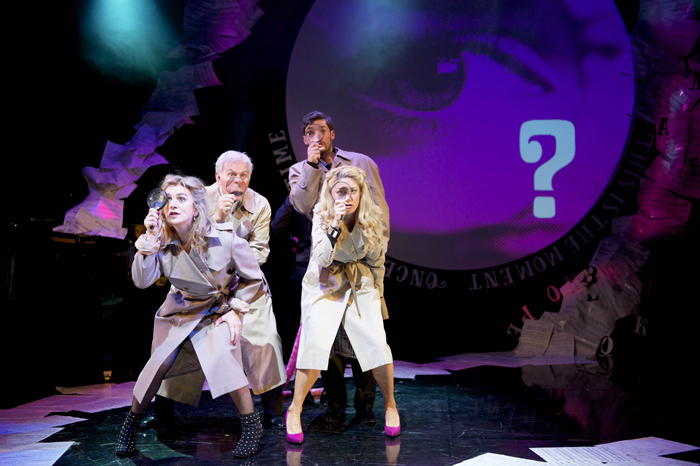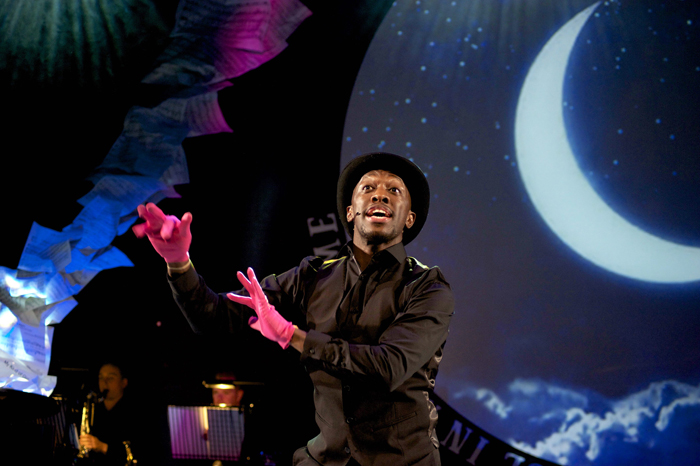 The British do love plays about their monarchs, especially when they show the Royals as real people and when there are resonances for now in the politics of the time. Helen Edmundson’s new play, Queen Anne, is a fine addition to the canon, exploring the reign of a Queen, perhaps known best for the furniture style named after her – and even that was after her death.
The British do love plays about their monarchs, especially when they show the Royals as real people and when there are resonances for now in the politics of the time. Helen Edmundson’s new play, Queen Anne, is a fine addition to the canon, exploring the reign of a Queen, perhaps known best for the furniture style named after her – and even that was after her death.
Queen Anne was the second daughter of James II. She came to the throne in 1702 after the death of her elder sister Mary, joint Monarch with William of Orange, Anne having been designated as their successor. Despite seventeen pregnancies by her husband, Prince George of Denmark, only one son survived infancy and he died aged just 11, so Anne died without any surviving children and was the last monarch of the House of Stuart. The Act of Union between England and Scotland was signed during her reign and Marlborough’s army defeated the French and Bavarians at the Battle of Blenheim.
Edmundson’s device here is to reflect events through the extraordinarily passionate friendship of Anne (Emma Cunliffe) with the formidable Sarah Churchill, Duchess of Marlborough (Natascha McElhone), a powerful friend and a dangerous enemy to everyone, including the Queen.
Edmundson also manages to make the power politics in a Protestant England at war with Catholic France entirely clear and fascinating and it paints a lively portrait of England’s power couple Sarah and her husband, that great general the Duke of Marlborough, (Robert Cavanah), who get to build the huge and grandiose Blenheim Palace as a reward for his victory at the eponymous battle.
Inevitably, there’s a lot of exposition, especially in the first scenes of the play. Happily Edmundson hits on the idea of bringing this to life with witty, well-realised set pieces using the scabrous satire of the pamphlets, prints and songs of the period. They’re presented here by a sparky Daniel Defoe (Carl Prekopp) and an urbane and worldly-wise Jonathan Swift (Tom Turner). A cruelly grotesque ‘Queen Anne’ padded out to look heavily pregnant, recalls the puppets in Spitting Image and pamphlets and broadsheet ballads shower the stage with paper, eagerly gathered by the public and so providing a useful, eye-opening parallel with the spread of stories by 20th century mass media and going viral in the age of the internet.
The play is at its best when exploring the consequences of’ ‘Mrs Morgan’s’ fervent, consuming and part-requited love of ‘Mrs Freeman’, as Anne and Sarah did in fact call each other; and the rising of the star of a new lady in waiting in the monarch’s life, the ambitious but genuinely caring Abigail Hill, later Masham (displaying ferocious intelligence and determination in Beth Parker’s quietly vivid performance), at the expense of the almost recklessly over-ambitious Sarah.
Emma Cunliffe give a fine portrait of a Queen disillusioned by events, yet eventually strengthened by the regal authority she needs to lead the nation. Edmundson writes a wonderfully lusty Sarah, in love with life, power - and her husband John Churchill; and Natascha McElhone realizes her wonderfully, splendid in her overweening self-belief and belief in the power she has over Anne. It’s really no surprise when she overreaches herself and the Queen’s stony rejection of her bewildered and angry erstwhile favourite is a powerful climax for both women. There’s strong support from Jonathan Broadbent as the politically astute Tory Robert Harley and from Richard Hope as Lord Chancellor Godolphin, bent on intrigue and in league with the Duke of Marlborough, a robust Robert Cavanah.
Director Natalie Abrahami orchestrates the private and the public to give satisfying light and shade and never lets the action drop into cod restoration comedy, even in those scurrilous ‘supper club’ scenes. And Hannah Clark’s design incorporates a simple truck four-poster bed that keeps the stage clear for action, so matters move along as fast as the exposition will allow. The authentic period costumes are attractively set off by elaborate hairstyles for the women and periwigs for the men that make you see why men affected them and what women might have seen in them. Edmundson’s play is a fascinating study of the power of love and the love of power and a delightfully lively and engrossing way to get to understand a monarch at such a turning point in our Island story.
By Judi Herman
Queen Anne continues runs until Saturday 23 January, 7.30pm & 1.30pm, £16-£37 at The Swan Theatre, Stratford-upon-Avon, CV37 7LS; 0844 800 1110. www.rsc.org.uk












